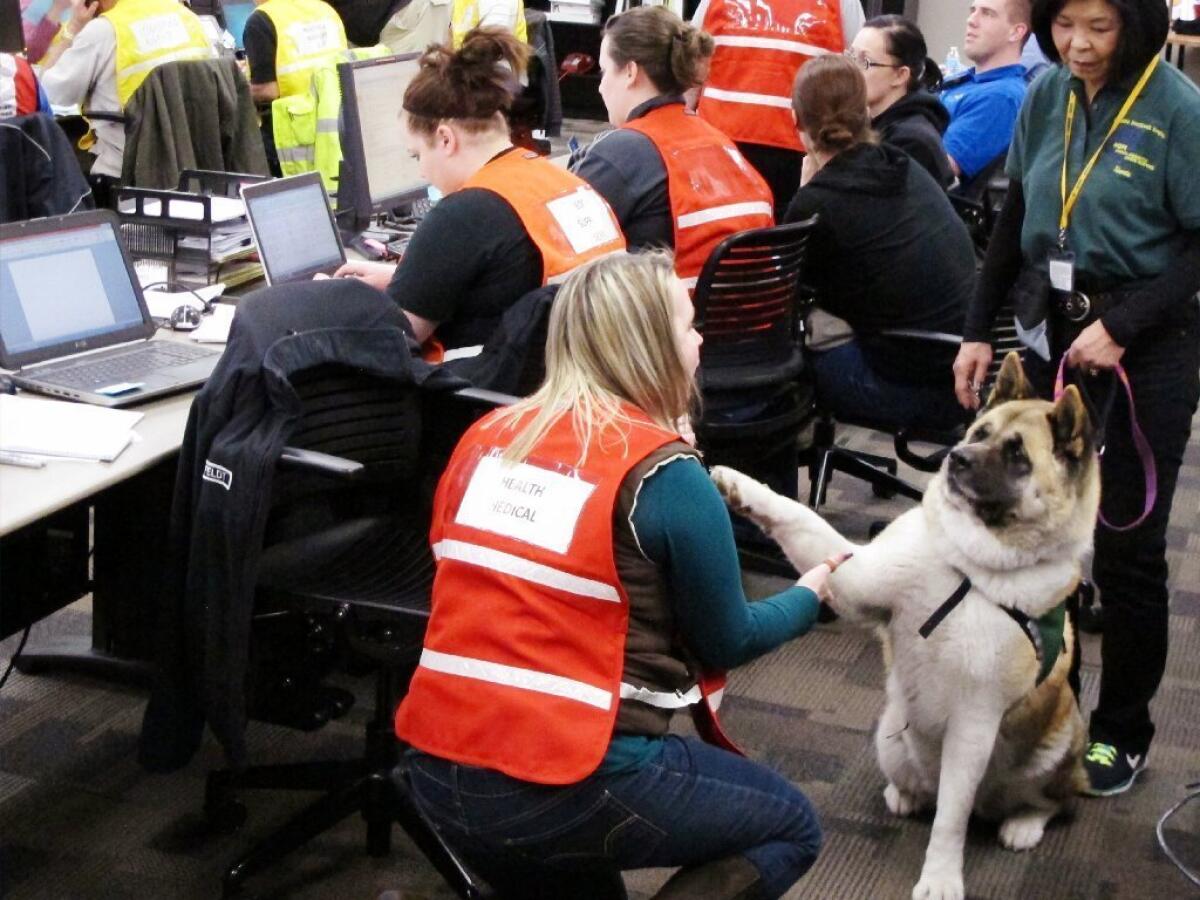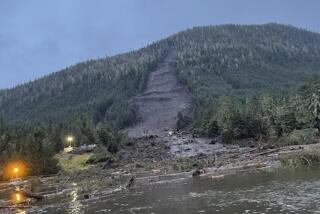Number of Washington state mudslide missing drops to 90

As a fifth day of search and recovery after the Washington state mudslide came to an end Wednesday, the confirmed death toll remained at 16, officials said. No more bodies had been recovered, and no more survivors were found.
Authorities said the number of missing after Saturday’s mudslide had officially dropped to 90, with 35 others possibly unaccounted for. But Snohomish County Emergency Management Director John Pennington told reporters in Arlington, Wash., that the latter figure was less credible.
Given the number of homes in the disaster zone just east of Oso, Wash., and the amount of traffic on State Route 530, 90 “seems like a logical number,” Pennington said.
The fluctuating tally of missing has haunted officials and local residents alike as rescuers pick through a dangerous, unstable square mile of mud and wreckage.
Officials had said Monday night that 176 people were unaccounted for, and said Tuesday’s figure was too fluid to release. But on Wednesday night, Pennington told reporters, 140 of the people on that list had since been registered on a website as “safe and well.”
But the 90 missing was a “very solid number,” Pennington said.
“Unless you’re in a jungle in South America, you know what’s happened here,” Pennington said, noting that the 90 people presumably would tell someone they were all right. He declined to release the names on the list, and refused to speculate whether they were likely to be dead and buried in the disaster zone.
“Look at the magnitude of what happened,” Pennington said. “The debris field is huge, it is complex, it is dangerous, and I don’t think we have a lot of answers.”
Beyond the 16 bodies that have been recovered from the mudslide, officials said they may have located eight more. But none of those was recovered Wednesday, and officials declined to officially raise the death toll.
Steve Westlake, the Snohomish County Emergency Management operations section chief, told reporters that the mudslide had been divided into eastern and western portions to help manage the search of a massive and dangerous disaster area.
Cadaver dogs “have helped us extremely” on the west side of the slide, but “they’re getting very fatigued very early” because of the tough terrain, Westlake said, so officials were hoping to shift the dogs to the east side.
Officials also continued to turn back volunteer searchers, particularly on the eastern side, which faces the isolated town of Darrington.
“On the Darrington side, we continue to see a high number of volunteers wanting to come out and help, and this time we’re requesting that we don’t need any more workers, because we already have enough,” Westlake said.
Pennington said a single-lane, gravel mountain road had been opened up to Darrington on Wednesday, relieving some of the area’s isolation after the mudslide buried State Route 530, the area’s primary route connecting it to Washington’s populous western region.
More to Read
Sign up for Essential California
The most important California stories and recommendations in your inbox every morning.
You may occasionally receive promotional content from the Los Angeles Times.











